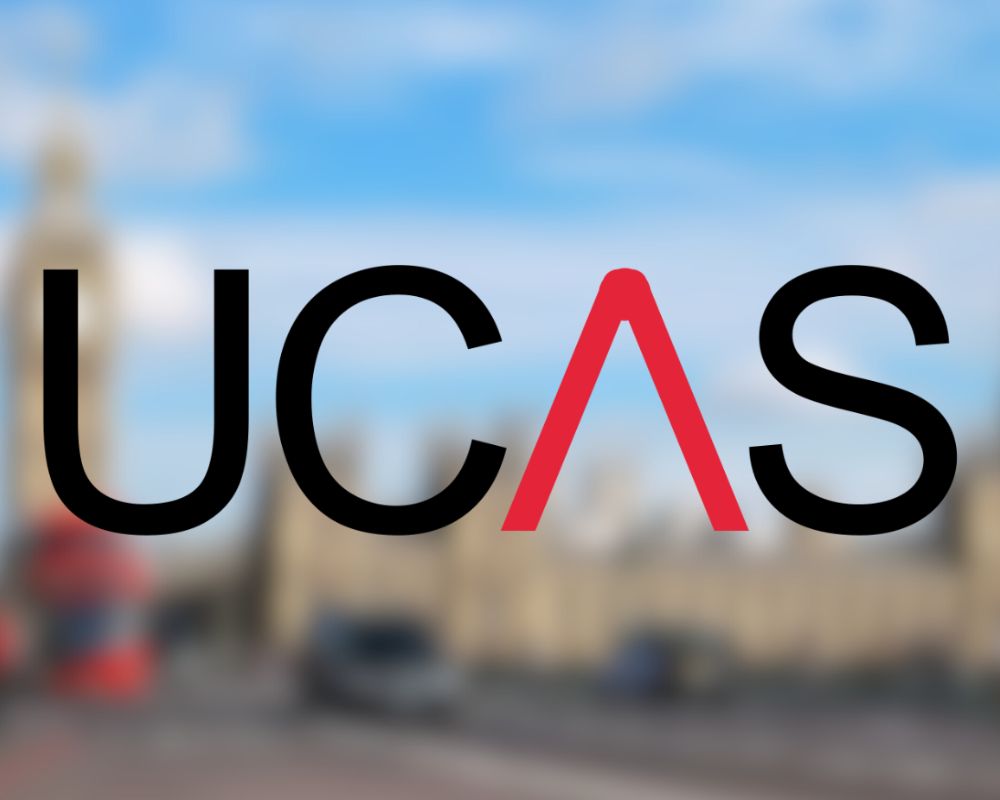Maximising Your UCAS Application: From References to Course Choices

Submitting a strong UCAS application is an important step in securing a place at your chosen university. Beyond the personal statement and entrance exams, there are other key components you need to focus on to make your application stand out. Whether it’s choosing the right courses or securing strong references, every detail matters.
This guide will help you make the most of your UCAS application and ensure you’re giving yourself the best chance of success

1. Choosing the Right Courses
One of the first decisions you’ll make when completing your UCAS application is selecting the courses and universities you wish to apply to. It’s important to balance ambition with realism—choose a mix of aspirational and more achievable options. Consider the entry requirements and what each course offers in terms of content, teaching style, and career prospects. Research each university’s strengths in your subject area and how their approach aligns with your academic interests.
📌 Tip: Aim to choose courses that you are passionate about, but also take into account factors such as course content, location, and future career goals.
2. Understand Entry Requirements
Different universities and courses have varying entry requirements, and it’s essential to know these before applying. Some institutions, like Oxbridge and other competitive universities, often require higher A-level grades (such as A*AA or AAA). Make sure you’re aware of any additional requirements, such as entrance exams or interviews, and begin preparing for those early.
📌 Tip: Make a list of all entry requirements for your selected courses and ensure you’re on track to meet them, including any necessary entrance exams.
3. Securing Strong References
Your references are a vital part of your UCAS application. Most universities expect at least one academic reference from a teacher who knows you well. Choose someone who can speak to your academic abilities, work ethic, and personal growth. Before asking a teacher or tutor for a reference, be sure to provide them with any relevant information, such as your personal statement or specific achievements, so they can write a well-rounded and personalised reference.
📌 Tip: Ask for your reference well in advance to give your teacher plenty of time to write a detailed and thoughtful recommendation.

4. Writing a Convincing Personal Statement
Your personal statement is your opportunity to showcase your passion for your chosen subject and highlight the unique qualities you’ll bring to the university. Be sure to link your academic interests to your extracurricular activities and demonstrate how your experiences have prepared you for university-level study. Show genuine enthusiasm for the subject and reflect on how your personal growth aligns with your academic aspirations.
📌 Tip: Your personal statement should be well-organised, authentic, and tailored to your chosen courses.
Need help writing a compelling personal statement? Check out our detailed guide on How to Craft the Perfect Personal Statement for Oxbridge or Redbrick Universities.
5. Balancing Your Five Course Choices
UCAS allows you to apply for up to five courses, and it’s essential to balance your choices wisely. Aim for a mix of ambitious options alongside courses that align more closely with your predicted grades. Be strategic—if you’re applying for highly competitive courses at Oxbridge or top Redbrick universities, make sure your other choices are a little less competitive but still aligned with your interests and career goals.
📌 Tip: Research the reputation of each university’s department in your subject area, as well as their graduate employment rates, to make informed decisions.
6. Double-Check Key Information
Before submitting your UCAS application, double-check all key information, from personal details to course codes. Ensure that you’ve met all deadlines and provided all necessary information, including your qualifications, personal statement, and references. A small mistake could delay or affect the success of your application.
📌 Tip: Review your entire application multiple times and ask a teacher or trusted mentor to proofread it before submission.
7. Be Mindful of Deadlines
Meeting deadlines is crucial when applying to universities through UCAS. While the standard deadline for most undergraduate courses is in January, Oxbridge, medicine, dentistry, and veterinary science courses have an earlier deadline in October. Missing these deadlines could result in your application not being considered, so it’s essential to plan well in advance.
📌 Tip: Mark all relevant UCAS deadlines on a calendar or planner, and aim to submit your application a few days before the official deadline to avoid any last-minute issues.

8. Prepare for Interviews or Further Assessments
Some universities, particularly Oxbridge and other highly competitive institutions, may invite you for an interview or require you to take additional assessments. Be prepared by researching the interview process for each university and practising your interview skills. Know your personal statement inside out, as interviewers may ask questions based on what you’ve written.
📌 Tip: If you’re invited for an interview, practise answering common questions and discussing your subject in-depth with teachers or tutors to build your confidence.
See More in This Series:
Looking for more tips and guidance on the university application process? Check out the other posts in our Navigating Top UK University Applications series:
- How to Apply to Oxbridge or Redbrick Universities Successfully
- How to Craft the Perfect Personal Statement for Oxbridge or Redbrick Universities
- How to Ace University Entrance Exams: TSA, LNAT & More
These posts will help you tackle each aspect of your application with confidence, from writing a standout personal statement to excelling in entrance exams and perfecting your UCAS submission.

